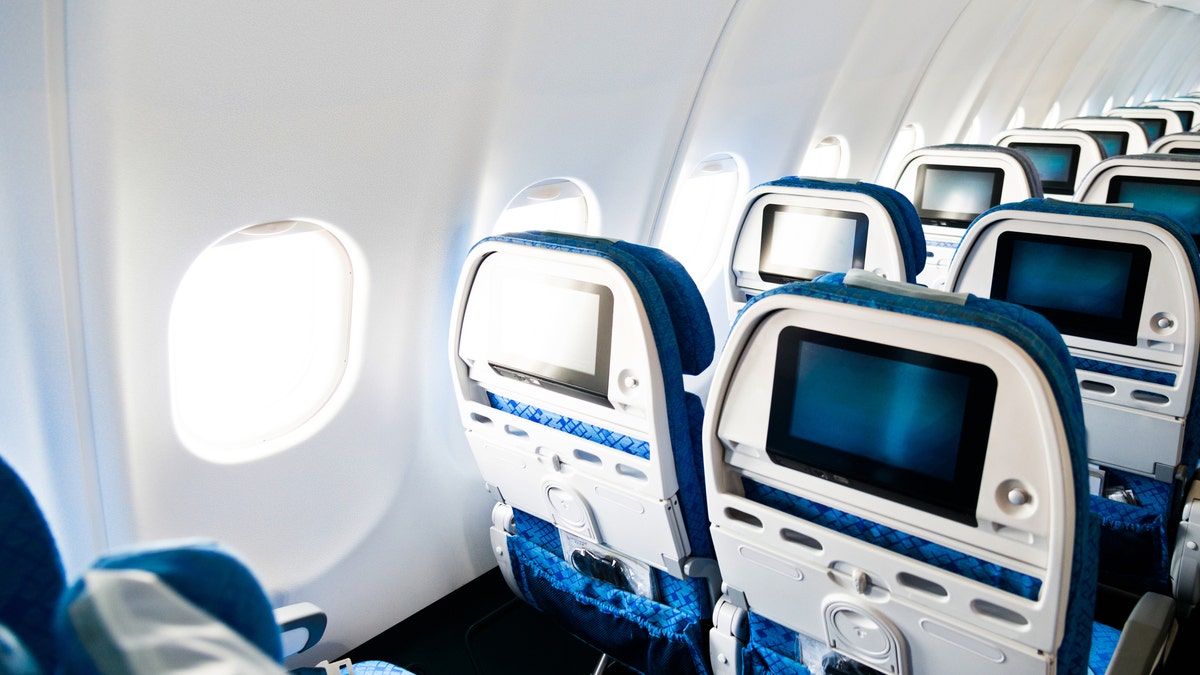
Airplane seat with Tv screens in chairs back. (baona)
If United Airlines crucified or even dragged Christians off a plane during their holy week, would the world pay attention?
It’s hard to believe that, within the same holy week that 50 Christians were bombed and murdered in their churches on Palm Sunday, the media and most of the world has already moved on to other news.
Like United Airlines’ treatment of a passenger.
No airline passenger should be treated that way. At the same time, no Christian, Jew, Yazidi or any person should be tortured, sold into slavery, crucified, or beheaded for refusing to renounce their faith. But that is what’s happening now, at the hands and blades and guns of ISIS and other radical Islamists.
While we pray for the speedy recovery of the United passenger, we must not forget about the suffering of tens of thousands of Christians – suffering which continues throughout this holy week.
Egypt’s Christians are still reeling from church bombings and mourning their dead. Pakistan’s churches are nearly empty on major holidays following the Youhanabad attacks of 2016. Boko Haram’s rise in Nigeria caused Christian persecution to rise more than 60 percent in less than one year. And, throughout the Middle East, Christians are being erased from the birthplace of Christianity.
Pockets of Islamist control throughout Egypt are suffocating the Church. When I was in Egypt in early 2016, I visited a region where villages truly are either “Christian” or “Muslim.” I traveled with a Muslim and two Christians from Cairo and they pointed out each village we drove by, proving that it’s not difficult for an Islamist to know exactly which villages to attack if their target is “Christians.”
Specifically, I remember the color green enveloping the small Christian villages. I was told that green is the color of Islam and so the Islamists will purposely build their mosques and buildings laced with green lights to sit over and all around the Christian villages just to remind them who they answer to. The vast indoctrination from a Muslim Brotherhood dominated education system is one reason why many Egyptians are growing up with “Islamist supremacy” beliefs and fundamental resentment of Christians.
So how can you help persecuted Christians?
Christians throughout Egypt, Nigeria, Pakistan and elsewhere have personally told me that each day they attend church they know could be their last.
Mona, an Egyptian Coptic Christian, stated that “my people have suffered under the yolk of Islamization of culture for so long. Our priests encourage us to spend our times in worship preparing for martyrdom and being reminded that we must never give up our hope in Christ no matter how many times we are told to renounce our faith.”
But what this past holy week represents is far more powerful than any bomb or terrorist mob. Coptic Christians and believers throughout the world base their faith on what Easter represents – resurrection and redemption. This gives Christians in Egypt and throughout the world the hope and strength to keep their faith.
On this season of Easter it is time for Christians everywhere to take up the cause of the persecuted Church. Because a genocide is happening on our watch – a genocide against Christians.
Especially during the most sacred holy week of the Christian year, let us focus on the realities of the men, women and children who are being tortured, murdered, and persecuted for keeping their faith. That is a story that deserves to be told.
On May 23, the film "Faithkeepers" will be released in churches, theaters and communities across America. It will show the uplifting personal stories of persecuted Christians and other minorities who suffered, but refused to renounce their faith.
In their stories, just like the story of Easter, we can all strengthen our own faith.
